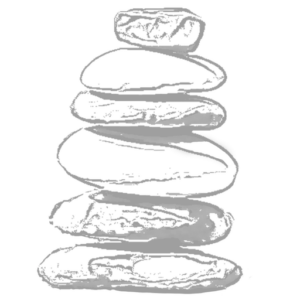We are all are hyper-aware of all the reasons for taking time away from our work and why it is important. I also know that I’m not the only person out there who has had the experience of going ‘on vacation’, and then found all sorts of reasons to justify or explain why I haven’t been able to unplug, and then come back to work feeling only partially rested. In my previous role, I found it almost impossible to stay away from checking email at best. Worse, I found myself more often than I liked, being part of meetings that at the time seemed essential and in retrospect probably weren’t. I’m not minimizing all the external factors that make it hard, even impossible, to step away 100% from leadership roles. But I’m also aware that we aren’t always intellectually honest with ourselves about whether we can unplug and why not. So I’m sharing 5 sets of questions I use now with myself and clients to be more empowered about when and how I step away from work.

- Staying Connected? How often do I (really) need to check email and texts? And WHY? Is because I am really needing to stay on top of all email? Does my OOO make clear who I have delegated to step in (Have I even done that and if not why not?). Am I waiting for one or two communications that I could funnel to my personal channels so that I only pay attention to those? For those of us fortunate to have assistants – could they triage emails and let me know of anything that I must pay attention to?
- What am I afraid of if I step back? And asking this question honestly (only you need to know the real answer). Is there really something terrible that might happen (and something the answer to this is a genuine yes)? Am I afraid of loss of control? Do I not have sufficient trust in my team and peers? Does this come from wanting to be in line with the overall culture where I work (e.g. no one really switches off) and therefore not being seen as team player? What’s the worst that might happen if something goes wrong that I am responsible for? (I don’t usually support catastrophizing but sometimes really digging into the worst case scenario can help us come up with strategies)
- Where might there be a gift to my organization if I were to truly switch off? I had a peer who said that he saw his vacation time as a great professional development opportunity for his team because they had to rely on themselves during this time and could experience what it was like to take on an extra level of responsibility? In organizations which say they value down time and vacation but where the culture means that no one really switches off, it takes brave leaders to model behaviors that then gives permission to others to take time off. Talking to multiple professionals, they say that there is little more inauthentic than the leader who says to take time off but then does not do that themselves, subconsciously indicating that the only way to be successful is to keep working. I found that when I could see the potential upsides of stopping checking in, I felt less selfish and could actually take action.
- What truly supports me to use the time to rest and resource myself? Some people say that checking email once a day allows them to relax, knowing that nothing bad has happened. Others find that by switching on email they then can’t get their brains out of work mode? Sometimes we have our most creative insights when we are completely unplugged (thanks Default Mode Network!!) and want to capture it before we lose that brilliant solution. Maybe it’s the time of day that I choose to connect (if I have to – is morning better than evening or vice versa?). Maybe for those with small kids ‘work time’ is an excuse to step back from family chaos. I think I may have done that at some point! Again being brutally honest is the key. For example I have found that, in my current role, I don’t find it particularly stressful to stay in contact with folks I am working with but when I have meetings that I am trying to schedule, particularly in different time zones, it stops me from being present with where I am at (and is also extremely annoying to people I am visiting I have found!).
- Doing a post mortem – after a vacation, just noticing how I feel coming back. Trying to be curious rather than judgmental. If I feel fully ‘restored’ hurray and that’s great. If not, what I might do differently next time? And can I write it down somewhere so that I don’t forget.
I’d love to know what strategies others use that work too.
